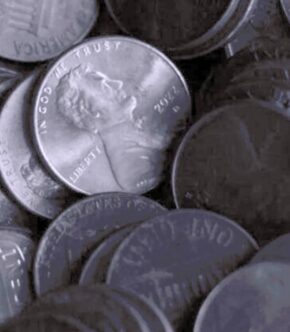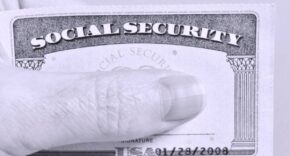As Bitcoin surges past $100,000 and gains mainstream recognition, a bold idea is making waves in Washington, D.C.—a national Bitcoin reserve. Advocates claim it could cement the United States’ dominance in the financial world. Critics warn it might wreak havoc on the economy. The proposal, spearheaded by Senator Cynthia Lummis and backed by President-elect Donald Trump, has sparked a heated debate about the costs, benefits, and risks of putting Bitcoin at the heart of America’s financial strategy.
The Proposal: A Strategic Bitcoin Reserve
The push for a national Bitcoin reserve took center stage in July 2024, when Senator Lummis introduced the BITCOIN Act at the Bitcoin Nashville conference. The bill proposes transferring all Bitcoin held by federal agencies—about 207,000 BTC—into the U.S. Treasury’s control. Additionally, it mandates purchasing up to 200,000 Bitcoins annually for five years, potentially amassing a total of 1 million Bitcoins, or approximately 5% of the cryptocurrency’s total supply. These holdings would be locked in for at least 20 years.
Senator Lummis described the initiative as America’s “Louisiana Purchase moment,” a reference to its potential to redefine the country’s financial future. Her enthusiasm is shared by prominent figures in the crypto world, like David Bailey, CEO of Bitcoin Magazine, who warned that delaying such action could let other nations get ahead. “Now that this idea is in the public sphere… other nations are going to try to frontrun the United States,” Bailey said in a recent discussion.
Supporters: A Hedge Against Uncertainty
Proponents of the Bitcoin reserve argue that the cryptocurrency could serve as a hedge against inflation, especially as fears of devalued fiat currencies grow. Songping Que, a senior manager at Neo Blockchain, sees the reserve as a potential catalyst for global crypto adoption. “A Bitcoin strategic reserve fund set up by the U.S. government will be the catalyst that sets Bitcoin’s price trajectory on course to reach the highest end of analysts’ projections,” she said, with some forecasts suggesting Bitcoin could hit $500,000.
Supporters also highlight how the move could encourage institutional investors, like pension funds, to embrace Bitcoin. According to Que, “A U.S. strategic Bitcoin reserve fund will add fuel to Bitcoin’s historic price rally.”
State-level initiatives echo these sentiments. Pennsylvania recently proposed a bill to allocate 10% of its $7 billion state treasury into Bitcoin, signaling growing confidence in the cryptocurrency’s stability and growth potential.
Critics: A Recipe for Economic Instability
Not everyone is convinced. Former New York Federal Reserve Chairman Bill Dudley warns of the risks, describing Bitcoin as a speculative asset with no intrinsic value. “Bitcoin is not connected to any cash flows like interest or dividends, and its price is driven purely by speculative demand,” he wrote in a recent opinion piece.
Dudley’s concerns go beyond Bitcoin’s volatility. He argues that funding such purchases would either increase government debt or stoke inflation, both of which could harm taxpayers. “If the Treasury borrows to fund Bitcoin purchases, it would drive up debt service costs,” he explained. “Alternatively, if the Federal Reserve creates money for the same purpose, it risks fueling inflation.”
He also pointed out the lack of an exit strategy, calling Bitcoin a potential liability for the government. “The government would end up holding tokens that produce no income, offering no real value to the majority of Americans,” Dudley warned.
Feasibility Challenges
Skeptics like Dr. Arash Aloosh, a finance and fintech expert, question whether such a reserve is even feasible. He noted that Bitcoin’s limited market size and high volatility make it an unlikely candidate for a reserve asset. “Establishing such a reserve would mean the U.S. government formally backing Bitcoin, potentially directing public funds into it, and endorsing it as a national asset, which runs counter to the cautious stance the government has held on crypto so far,” Aloosh explained.
Additionally, large-scale Bitcoin purchases could create significant market distortions. Aloosh cautioned that buying such vast quantities could drive up prices, increasing costs and making the plan even harder to execute.
The Bigger Picture: Implications for the Dollar
One of the most debated aspects of the Bitcoin reserve proposal is its potential impact on the U.S. dollar’s status as the global reserve currency. Critics, including Dudley, argue that embracing Bitcoin could weaken confidence in the dollar. On the other hand, supporters claim that the reserve would showcase the United States as a leader in financial innovation, potentially attracting international investment.
Move or Misstep?
The proposal for a U.S. strategic Bitcoin reserve has stirred passionate arguments on both sides. Advocates see it as a groundbreaking move to secure the nation’s financial future and foster innovation. Critics caution against the risks of volatility, debt, and inflation, urging the government to prioritize regulation over accumulation.
As the BITCOIN Act moves through Congress, the decision will likely have far-reaching implications for the U.S. economy and the global cryptocurrency market. Will the United States seize this “Louisiana Purchase moment,” or will caution prevail?











